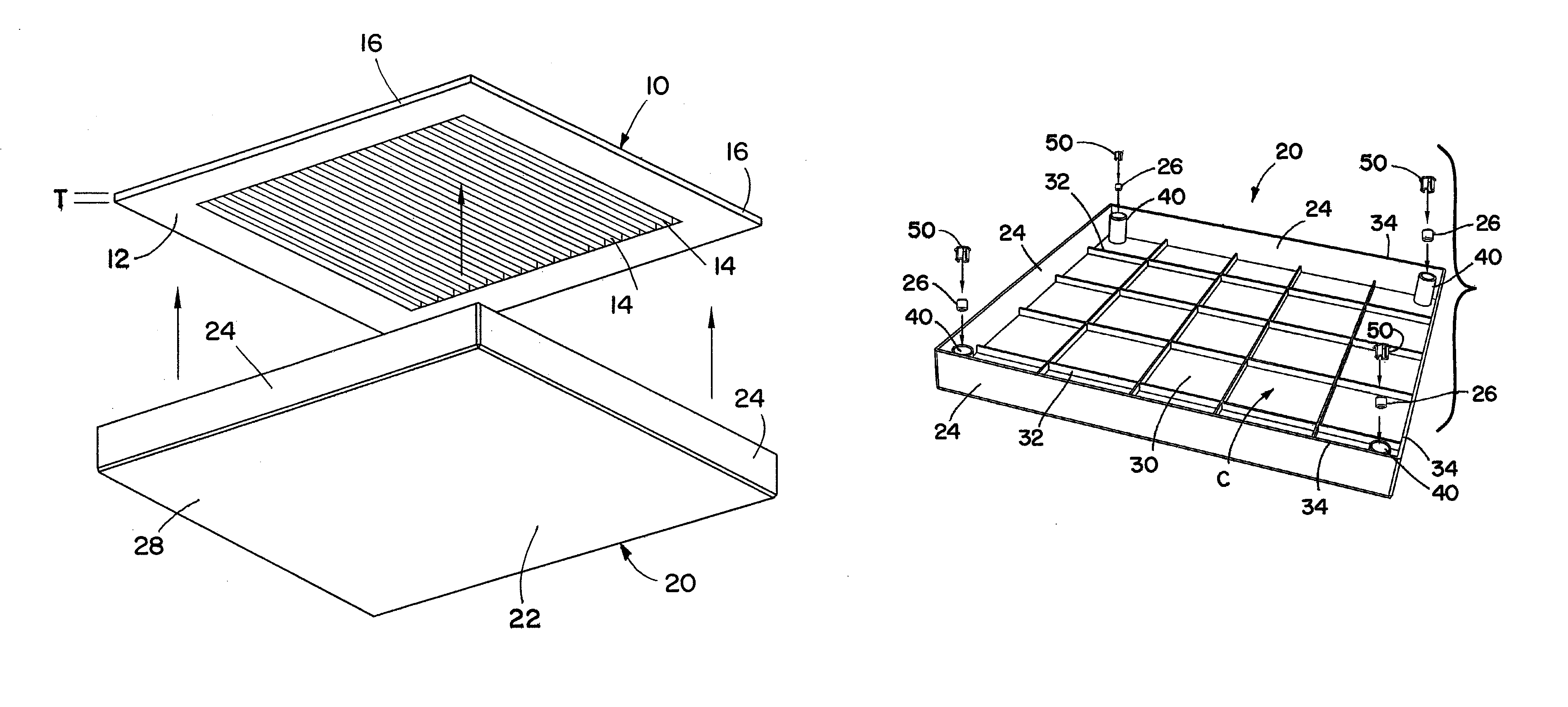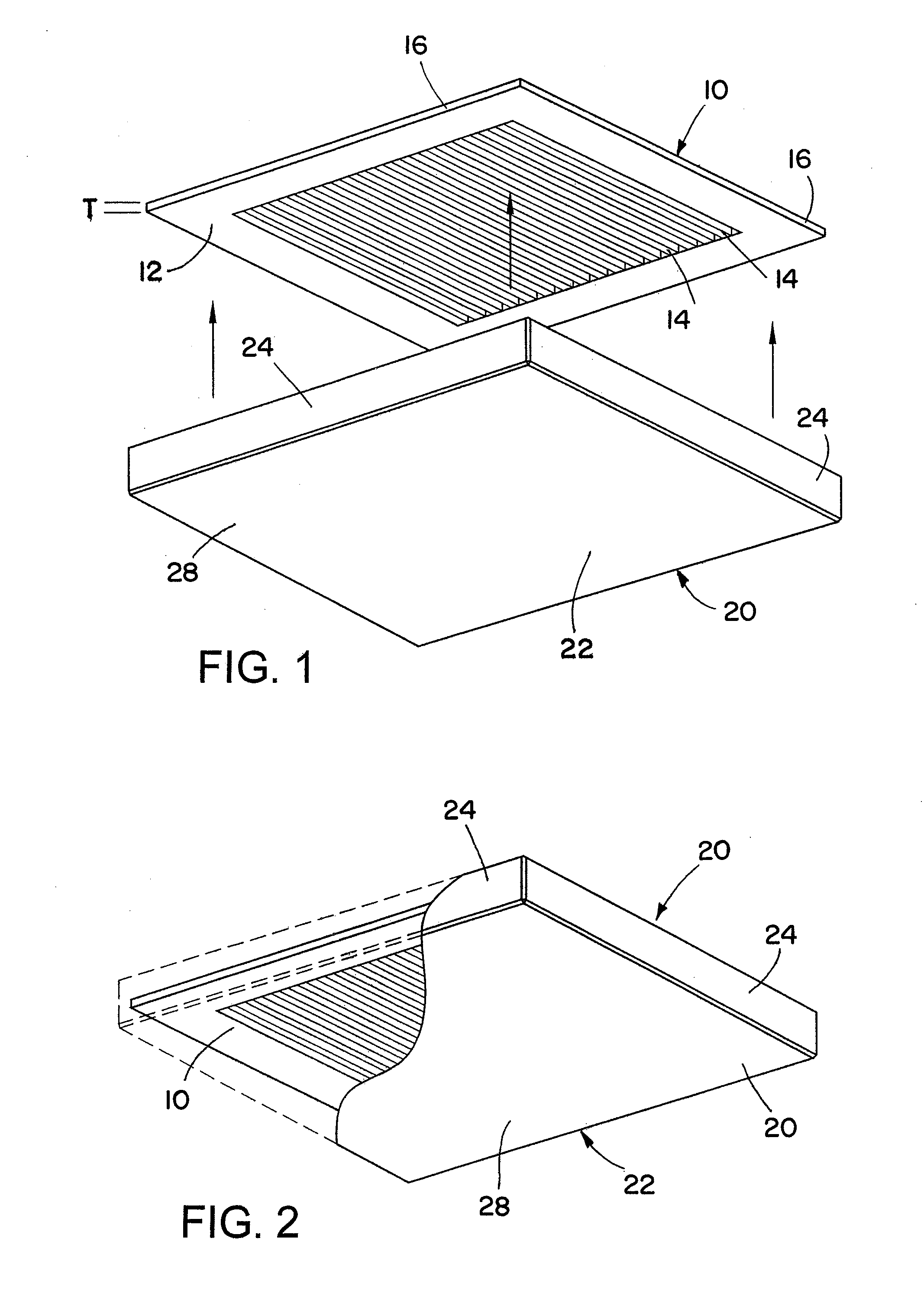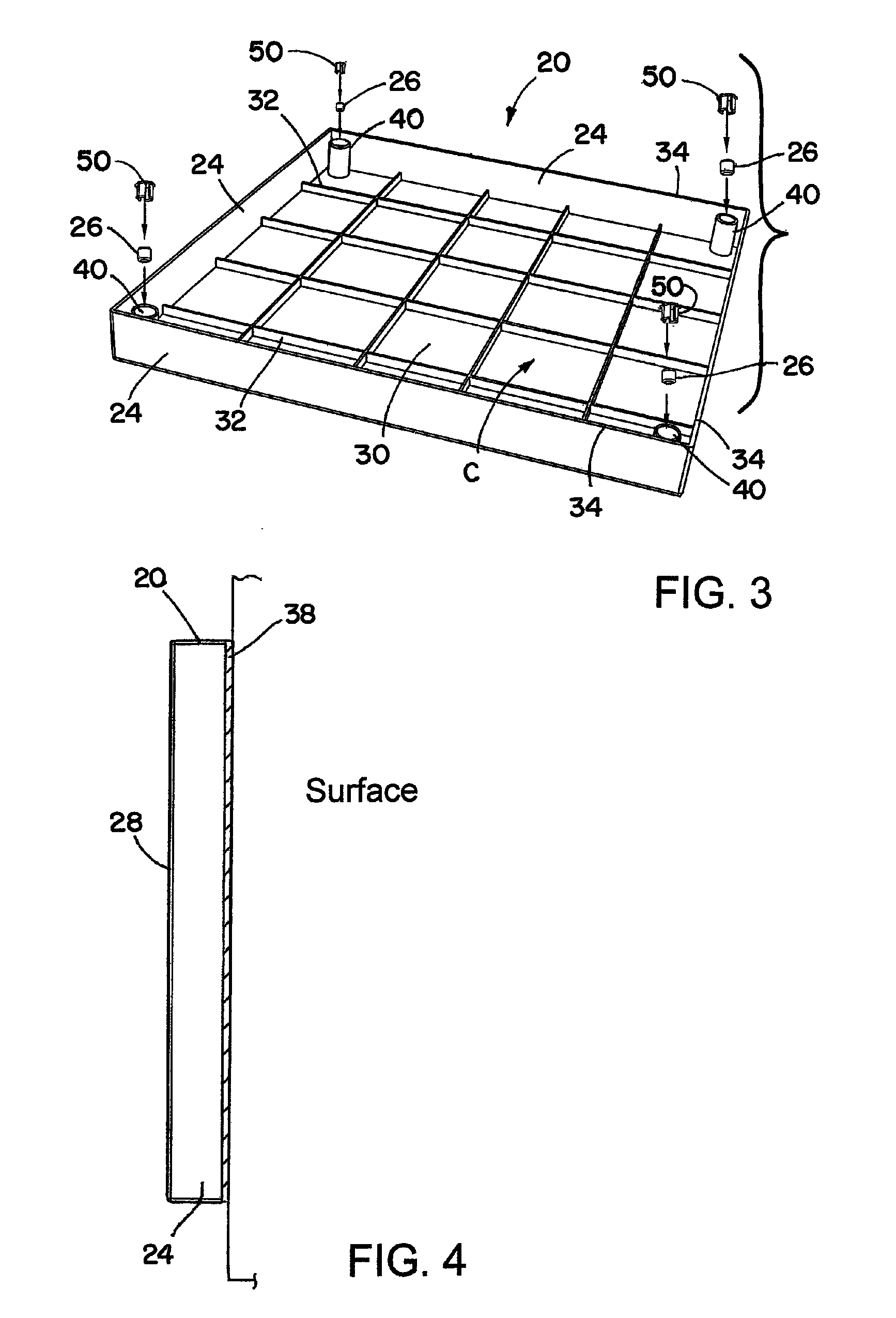Magnetic register cover
a register cover and magnetic technology, applied in ventilation systems, lighting and heating apparatus, heating types, etc., can solve the problems of wasting energy, unable to meet the needs of users, and unable to meet the needs of users, and achieve the effect of convenient security
- Summary
- Abstract
- Description
- Claims
- Application Information
AI Technical Summary
Benefits of technology
Problems solved by technology
Method used
Image
Examples
Embodiment Construction
[0023]The present invention will now be described with reference to the drawings, wherein like reference numerals are used to refer to like elements throughout.
[0024]Referring to FIG. 1, a conventional register 10 for a heating, ventilation & air conditioning (HVAC) system is disclosed. The conventional register 10 illustrated in FIG. 1 is a ceiling register. In addition to ceiling registers, one of ordinary skill in the art will readily appreciate that the present invention may be used in connection with all types of registers (e.g., wall registers, louvered registers, patterned registers, etc.).
[0025]As shown in FIG. 1, the conventional register 10 includes face 12 having a plurality of openings 14 formed in the face 12 to allow forced air to escape through. The register 10 may further include louvers (not shown) that may be adjusted to control forced air flow through the register. The register 10 may also include sidewalls 16 that extend above a surface (e.g., wallboard, a wall, ...
PUM
| Property | Measurement | Unit |
|---|---|---|
| thickness | aaaaa | aaaaa |
| thickness | aaaaa | aaaaa |
| perimeter | aaaaa | aaaaa |
Abstract
Description
Claims
Application Information
 Login to View More
Login to View More - R&D
- Intellectual Property
- Life Sciences
- Materials
- Tech Scout
- Unparalleled Data Quality
- Higher Quality Content
- 60% Fewer Hallucinations
Browse by: Latest US Patents, China's latest patents, Technical Efficacy Thesaurus, Application Domain, Technology Topic, Popular Technical Reports.
© 2025 PatSnap. All rights reserved.Legal|Privacy policy|Modern Slavery Act Transparency Statement|Sitemap|About US| Contact US: help@patsnap.com



